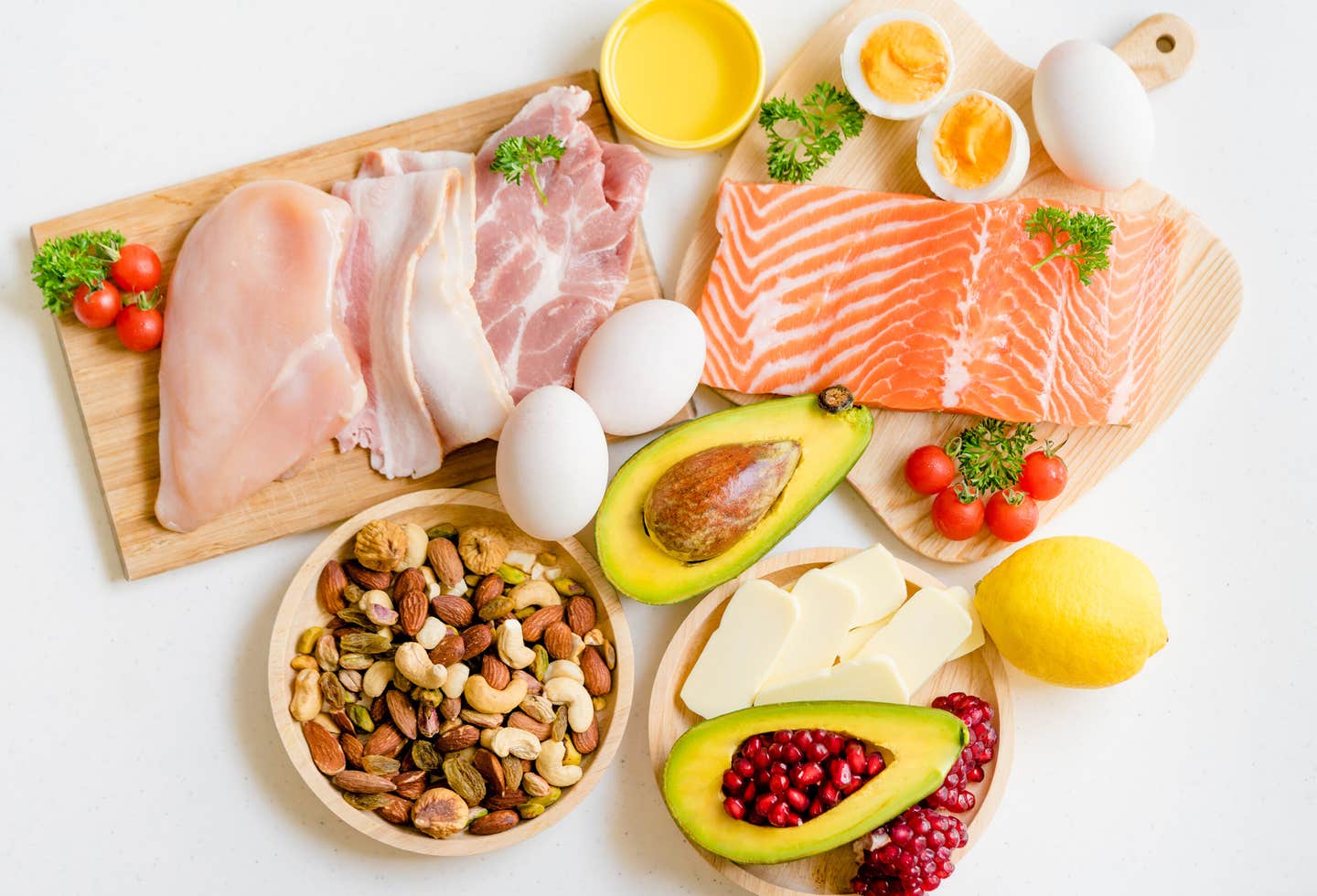Higher protein intake while dieting leads to healthier eating
Drinking a small amount of whey protein before meals has been shown to help people with type 2 diabetes control their blood sugars.

[Aug 21, 2022: Megan Schumann, Rutgers University]
Kieran Smith in the lab with the protein shots. (CREDIT: Newcastle University, UK)
Drinking a small amount of whey protein before meals has been shown to help people with type 2 diabetes control their blood sugars.
In a study, which holds potential for dietary management of the condition, people with type 2 diabetes drank a pre-made shot before meals which contained a low dose of whey protein. They were monitored for a week as they went about normal daily life.
To compare the potential benefits of whey protein, the same participants also spent a week drinking a control shot that contained no protein in order to measure the results against each other.
Results from continuous glucose monitoring revealed that glucose levels were much better controlled when taking the whey supplement before meals. On average, they had two hours extra per day of normal blood sugar levels compared to the no protein week. In addition, their daily blood glucose levels were 0.6 mmol/L lower compared to when they consumed the supplement without any protein.
Dr Daniel West, Senior Lecturer and Principal Investigator working within the Human Nutrition Research Centre and Diabetes Research Group at Newcastle University, UK said: “While previous studies for a few hours in the lab have shown the potential for this dietary intervention, this is the first time that people have been monitored as they go about normal life.
Related Stories:
“We believe the whey protein works in two ways, firstly, by slowing down how quickly food passes through the digestive system and secondly, by stimulating a number of important hormones that prevent the blood sugars climbing so high.
“As we see growing numbers of people around the world developing diabetes, investigating the potential of alternatives to drugs such as food supplements becomes more important.”
18 people with type 2 diabetes consumed a small drink - in a 100 ml shot- with 15 grams of protein 10 minutes before breakfast, lunch and dinner over seven days and remained on their prescribed diabetes medication. Continuous glucose monitoring automatically tracked blood glucose levels over the course of the week.
The participants were given nutrition advice based on the guidelines of the Academy of Nutrition and Dietetics and the American Diabetes Association.
They were encouraged to allot 18 percent of their caloric intake to lean protein, such as poultry, unprocessed red meat, fish, legumes and dairy, and to expend the balance of their calories on fruits, vegetables and whole grains. They were discouraged from ingesting saturated fats, refined grains, sugar and salt.
Participants kept detailed food records, which researchers analyzed for diet quality, specific categories of foods consumed and ratios and specific sources of protein.
The participants who self-selected their protein intake were then characterized by researchers into a lower-protein approach with 18 percent of overall calories coming from protein or a higher-protein approach with 20 percent of the overall food intake coming from protein.
The study concludes:
Both low- and high-protein groups lost the same amount of weight – about five percent of their body weight over six months
Higher-protein groups individuals chose a mix of healthier foods to eat overall
Higher-protein group individuals specifically increased intake of green vegetables and cut back on sugar and refined grains
Higher-protein group individuals were better able to retain their lean muscle mass
Other Rutgers researchers on the paper include Yvette Schlussel and Lingqiong Meng in the Department of Nutritional Sciences at SEBS.
Note: Materials provided by Rutgers University. Content may be edited for style and length.
Like these kind of feel good stories? Get the Brighter Side of News' newsletter.
Tags: #New_Discoveries, #Global_Good_News, #Diabetes, #Medical_News, #Whey, #Proteins, #Treatment, #Science, #Research, #The_Brighter_Side_of_News
Joshua Shavit
Science & Technology Writer | AI and Robotics Reporter
Joshua Shavit is a Los Angeles-based science and technology writer with a passion for exploring the breakthroughs shaping the future. As a contributor to The Brighter Side of News, he focuses on positive and transformative advancements in AI, technology, physics, engineering, robotics and space science. Joshua is currently working towards a Bachelor of Science in Business Administration at the University of California, Berkeley. He combines his academic background with a talent for storytelling, making complex scientific discoveries engaging and accessible. His work highlights the innovators behind the ideas, bringing readers closer to the people driving progress.



